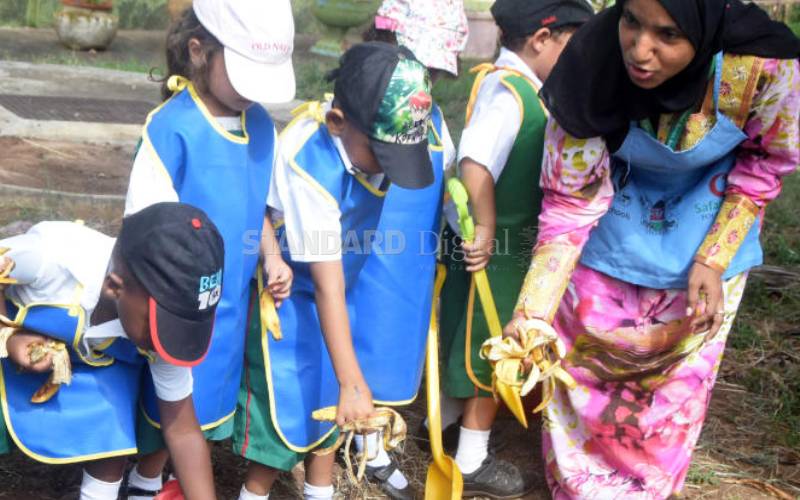×
The Standard e-Paper
Home To Bold Columnists

A teacher shows nursery school children (PP1) how to bury banana peels and cover them to manufacture manure. There is concern that some teachers are suggesting wrong learning activities under Competency Based Curriculum, thus unnecessarily burdening parents. [Gideon Maundu, Standard]
Parents are unnecessarily paying more under the Competency Based Curriculum (CBC) because many teachers still do not understand how the new syllabus works, the country’s curriculum developer has said.